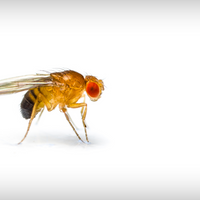Login
Subscribegenetics, genetics & genomics

Researchers Develop Standards for Reporting Polygenic Risk Scores
Marcus A. Banks | Mar 17, 2021 | 3 min read
Current reporting about the contribution of genetic variations to a person’s risk of disease is often incomplete and hard to interpret, according to the authors of a set of best practices for presenting such information.

Derek Applewhite’s Actin Research Inspires the Next Generation
Lisa Winter | Mar 1, 2021 | 4 min read
The biologist’s undergraduate-centered lab allows students to play a meaningful role in research.

Certain Color Varieties of a Coral Are More Protected from Bleaching
Lisa Winter | Feb 25, 2021 | 2 min read
In yellow-green and purple versions of the reef-building Acropora tenuis, the genes that code for particular fluorescent and other colorful proteins become more active in the summer, protecting symbiotic algae from thermal stress and resisting bleaching.

Gene-Edited Organoids Explore Neanderthal Brain Function
Jef Akst | Feb 12, 2021 | 3 min read
Using CRISPR to swap an archaic variant of the NOVA1 gene into human stem cells, researchers create organoids with neurodevelopmental differences from those carrying modern DNA.

Siobhán Brady Uses Big Data to Investigate Plant Development
Shawna Williams | Feb 1, 2021 | 3 min read
The University of California, Davis, professor is a pioneer in teasing apart the changes in gene expression that drive root development.

How RNAs Called SINEUPs Upregulate Translation
Catherine Offord | Jan 1, 2021 | 2 min read
The recently discovered long noncoding RNAs seem to boost the production of specific proteins in the cell by interacting with RNA-binding proteins, researchers find.

Q&A: How Animals Change in Space
Jef Akst | Nov 25, 2020 | 4 min read
Weill Cornell Medicine geneticist Christopher Mason speaks with The Scientist about a bolus of new work on the physiological, cellular, and molecular effects of leaving Earth.

Q&A: A New Tool for Ensuring Genetic Privacy
Amanda Heidt | Nov 12, 2020 | 6 min read
Gamze Gursoy and Mark Gerstein of Yale Medical School have developed a strategy for stripping identifying variants from functional genomic data, balancing privacy with utility.

Regulators of Gene Activity in Animals Are Deeply Conserved
Amanda Heidt | Nov 6, 2020 | 5 min read
Enhancers, short regions of DNA that direct gene expression, of species separated by 700 million years of evolution worked interchangeably, according to a new study.

How a Centipede Survives its Own Species’ Venom
Shawna Williams | Nov 1, 2020 | 2 min read
The same toxin targets different receptors in prey and conspecifics to deliver either a lethal or non-lethal blow.

New Map Charts Genetic Expression Across Tissue Types, Sexes
Ashley Yeager | Sep 10, 2020 | 3 min read
A decade-long effort to probe gene regulation reveals differences between males and females, points to essential regulatory elements, and offers insight into past work on telomeres.

Panel Lays Out Guidelines for CRISPR-Edited Human Embryos
Lisa Winter | Sep 4, 2020 | 2 min read
The International Commission on the Clinical Use of Human Germline Genome Editing claims the technology is still too risky for therapeutic use.

Long-Lasting Wound Infections Linked to Microbes and Genetics
Lisa Winter | Sep 1, 2020 | 2 min read
Two gene variations might help explain why some people experience chronic wounds.

Infographic: Dialing Down the Glitz
Rachael Moeller Gorman | Sep 1, 2020 | 1 min read
The gene BCO2 enables male and female members of some bird species to display dramatically different color patterns.

The Peopling of South America
Shawna Williams | Sep 1, 2020 | 10+ min read
While questions still outnumber answers, new findings from archaeology, genetics, and other disciplines are revealing surprising insights into the early cultures of the most recently populated continent.

The Gene that Makes Female Birds Drab
Rachael Moeller Gorman | Sep 1, 2020 | 3 min read
In some finch species, the difference between colorful males and muted females comes down to one gene, BCO2, which encodes an enzyme that degrades carotenoids.

Contributors
The Scientist | Sep 1, 2020 | 4 min read
Meet some of the people featured in the September 2020 issue of The Scientist.

Infographic: South America’s Early Prehistory
Shawna Williams | Sep 1, 2020 | 4 min read
Genetics and archaeology yield clues as to when humans first arrived on the continent and how these early settlers lived.

Male Flies’ Y Chromosome May Contribute to Earlier Deaths
Jef Akst | Jul 13, 2020 | 2 min read
As male Drosophila grow old, selfish genetic elements that are abundant on the Y chromosome become more active, which appears to reduce longevity.

Native Americans Crossed the Pacific Long Before Europeans
Abby Olena, PhD | Jul 8, 2020 | 4 min read
Genetic evidence points to individuals from South America having possibly floated on a raft to Polynesian islands about 500 years before Europeans navigated there.